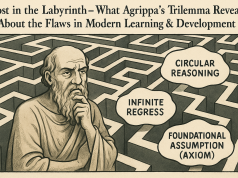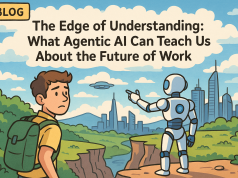In the fluid landscape of today’s labor market, where the gig economy burgeons and the stability of traditional employment seems like a relic of the past, workers are faced with a reality that is as daunting as it is liberating. The freelance era has brought about profound changes in how, when, and where work is done, pushing workers into a continuous cycle of skill acquisition and adaptation. But the question remains: how do gig workers keep pace with the fast-evolving demands of the job market?
The gig economy, characterized by short-term contracts and freelance work as opposed to permanent jobs, has become an undeniable fixture in our society. It’s redefined the concept of ‘job security’, making it synonymous with one’s ability to swiftly adapt and learn. Lifelong learning has thus emerged as the cornerstone for those who thrive in this new economy.
Freelance workers often find themselves playing catch-up with the relentless advances in technology and shifting market trends. E-learning platforms have risen to the occasion, offering a plethora of courses and programs designed to equip gig workers with the latest skills in their respective fields. From coding bootcamps to digital marketing workshops, these platforms are the lighthouses guiding workers through the murky waters of gig work.
Beyond the digital realm, community-based upskilling initiatives have also gained momentum. Local workshops, networking events, and collaborative projects forge communities of practice where peers learn from one another, share experiences, and build a support system that extends beyond professional growth. These initiatives provide the social fabric that e-learning often lacks, creating a holistic approach to professional development.
Yet, there remain gaps that need bridging. Access to these resources isn’t uniform, and for many, the cost of upskilling can be prohibitive. This is where policy measures step in, ensuring that the gig economy’s promise of flexibility doesn’t come at the cost of growth opportunities. Governments and organizations are beginning to recognize the importance of supporting gig workers, with grants, subsidies, and tax deductions aimed at making continuous education more accessible.
Fostering a culture of continuous learning doesn’t just benefit individual workers; it catalyzes the creation of a dynamic and resilient workforce. As we steer through the uncharted waters of the freelance era, it is crucial to anchor in the commitment to lifelong learning—a commitment that not only empowers workers but also strengthens the very fabric of our evolving workplace.
In conclusion, the landscape of work may have changed, but the need to grow, adapt, and learn remains a constant. For gig workers, lifelong learning is not just a means to remain competitive—it’s a strategy for survival. By leveraging e-learning, community initiatives, and seeking supportive policies, they can navigate the freelance era not as solitary drifters but as skilled navigators, charting their own courses towards success.




























